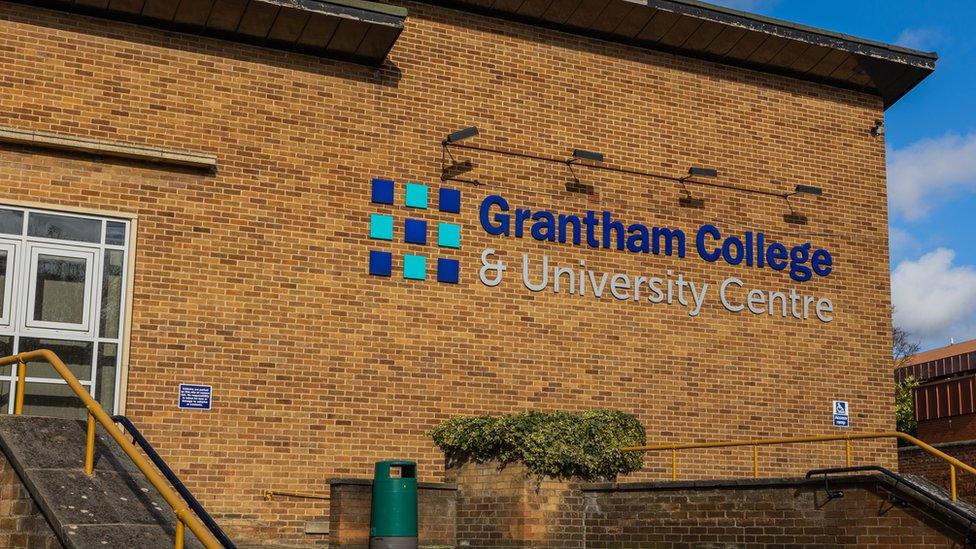Raac: Grantham College classrooms shut after unsafe concrete found
- Published

Grantham College is one of 27 schools and colleges across the country named in the list of sites affected by Raac
Several classrooms and buildings have been closed at Grantham College after potentially dangerous concrete was found at the site.
The college has been added to the list of schools in England with reinforced autoclaved aerated concrete (Raac).
The site remained open to students, but timetables had been changed so teaching could continue, the college said.
Principal Paul Deane said: "We will always prioritise the safety of students and our staff."
Mr Deane, also the college's chief executive, said part of a large brick workshop, offices in the college's library and engineering blocks were also among the areas affected.
They had been closed after a recent survey commissioned by the Department for Education (DfE) identified Raac panels had been used in their construction.
On the college's website, Mr Deane said he appreciated "the concern this may raise".
He added: "DfE will be supporting us throughout and will also be assisting with longer term remediation measures so we can bring all students back into the affected classrooms and workshop areas once we are fully confident it is safe to do so."
The closure of affected areas came less than two weeks into the start of a new term.
Watch: How RAAC concrete can crumble under pressure
Mr Deane said college staff were "doing all we can to ensure the impact on students is kept to a minimum", before thanking everyone for their "patience and understanding".
He said timetables had been adjusted "so face-to-face teaching can continue".
Grantham College is one of 27 schools across the country named in the DfE's latest list of those sites affected, which was updated and published on Tuesday, external.
Raac is a lightweight material used mostly in flat roofing, but also in floors and walls, between the 1950s and 1990s.
It is a cheaper alternative to standard concrete and has a lifespan of about 30 years, but is less durable and is susceptible to structural failure when exposed to moisture.
Just days before the start of the autumn term, the DfE updated its guidance so schools with Raac, which was previously deemed safe, were told to close any areas containing the concrete without safety measures in place.
Education Secretary Gillian Keegan said the government was working "flat out" to minimise disruption to education and to keep children and staff safe.

Follow BBC East Yorkshire and Lincolnshire on Facebook, external, Twitter, external, and Instagram, external. Send your story ideas to yorkslincs.news@bbc.co.uk, external.
- Published19 September 2023

- Published19 September 2023

- Published19 September 2023
